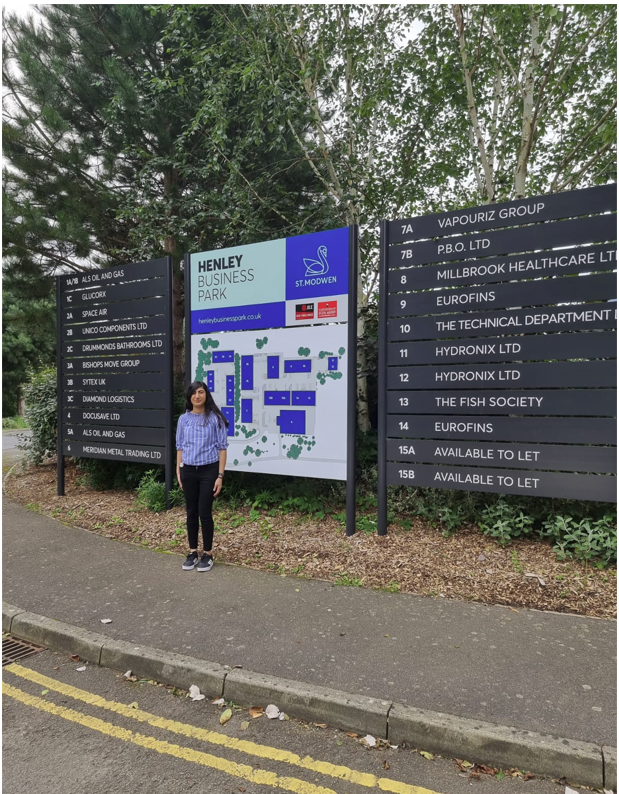Hi, I'm Sonali! I am a final year student studying a MChem Chemistry degree at the University of Lincoln. In my spare time I like singing, writing my own songs and playing badminton. I am also passionate about raising money…

Are you a university student considering doing a placement year? If you are considering whether you should do a placement, I cannot recommend it enough! It is very competitive to obtain a placement and feels like at times you keep getting rejections, keep persevering, don’t give up and you will succeed!
My Experience
Recently, I completed a summer placement at Eurofins Laboratories in London on coronavirus research. It was an amazing experience working in an industry laboratory. Some of my highlights were carrying out the IPSOS research government project which is a leading major programme partnering with Imperial College London and the Department for Health and Social Care (DHSC) to track the progress of the virus across the country, making up a range of stock solutions and reagents according to COSHH guidelines and processing and analysing SARS-CoV-2-RNA samples. From carrying out this placement I experienced the taste of the real working world, a new city and also an opportunity to expand my network within the industry as a whole. Having completed a placement I have invaluable laboratory experience in a well-known industry under my belt which will be extremely useful when joining the competitive graduate job market and therefore if you are thinking about a placement year I believe that it is an invaluable experience and I would definitely recommend it to anyone!
Top Tips

1. Enhance your career prospects
Placements not only strengthen your CV but also help you to develop professionally. They help you stand out from the crowd when applying for jobs. By completing a year’s placement employers will see that you are passionate and proactive about your chosen career path and have the key industry knowledge. Undertaking a placement year means you have the opportunity to ‘test-drive’ a career and make an informed decision.
2. Discover the real world of work
You are given real responsibilities that not only challenge you but also get you into the habit of a 9-5 or 9-6 routine. This is the chance for you to get ahead of the game, obtain some paid industry level experience before you graduate and increase the odds of you securing a job at the end of it.

What placement options are there available?
A placement year is where students have one years’ work experience typically in between the second and third year of their studies. Many degree courses offer the ‘year in industry’ option, which allows students to gain more insight as well as have hands-on experience and learning away from lecture theatres. Students can complete a placement in the UK or abroad, the placement is usually paid depending on their chosen field and they can also gain the experience of working in the industry they would potentially like to work in in the future.
What support is available for those students interested in a placement year?
The careers centre at the university is very helpful as they will provide you with many services in helping you find a placement. Many universities hold placement fairs as well as graduate recruitment where they invite lots of industries that offer placements, so attend these events as you will be able to talk first hand to the industries that you may consider applying for. In addition, they offer a CV clinic where they can help you make amendments and give you advice on how to tailor and improve your CV, alongside this you can also book a mock assessment centre or a mock interview with the careers team and get some feedback to ensure you are well prepared for the real thing when the time comes.
So…
Don’t worry if you are still unsure of whether a placement year is for you, most universities and degree courses allow you to change your mind partway through to either opt-in or out to do a placement year or just go straight into your final year of your studies.




